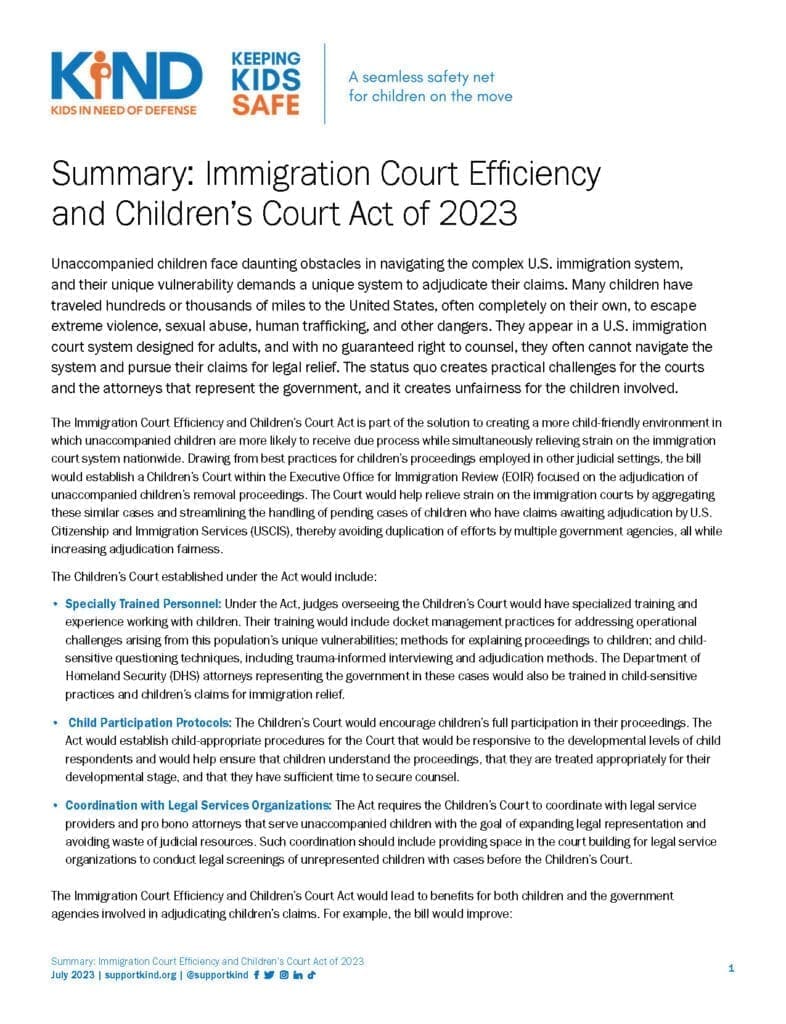Summary: Immigration Court Efficiency and Children’s Court Act of 2023
November 1, 2023

Unaccompanied children face daunting obstacles in navigating the complex U.S. immigration system, and their unique vulnerability demands a unique system to adjudicate their claims. Many children have traveled hundreds or thousands of miles to the United States, often completely on their own, to escape extreme violence, sexual abuse, human trafficking, and other dangers. They appear in a U.S. immigration court system designed for adults, and with no guaranteed right to counsel, they often cannot navigate the system and pursue their claims for legal relief. The status quo creates practical challenges for the courts and the attorneys that represent the government, and it creates unfairness for the children involved.
The Immigration Court Efficiency and Children’s Court Act (S.3178/H.R.6145) is part of the solution to creating a more child-friendly environment in which unaccompanied children are more likely to receive due process while simultaneously relieving strain on the immigration court system nationwide. Drawing from best practices for children’s proceedings employed in other judicial settings, the bill would establish a Children’s Court within the Executive Office for Immigration Review (EOIR) focused on the adjudication of unaccompanied children’s removal proceedings. The Court would help relieve strain on the immigration courts by aggregating these similar cases and streamlining the handling of pending cases of children who have claims awaiting adjudication by U.S. Citizenship and Immigration Services (USCIS), thereby avoiding duplication of efforts by multiple government agencies, all while increasing adjudication fairness.
